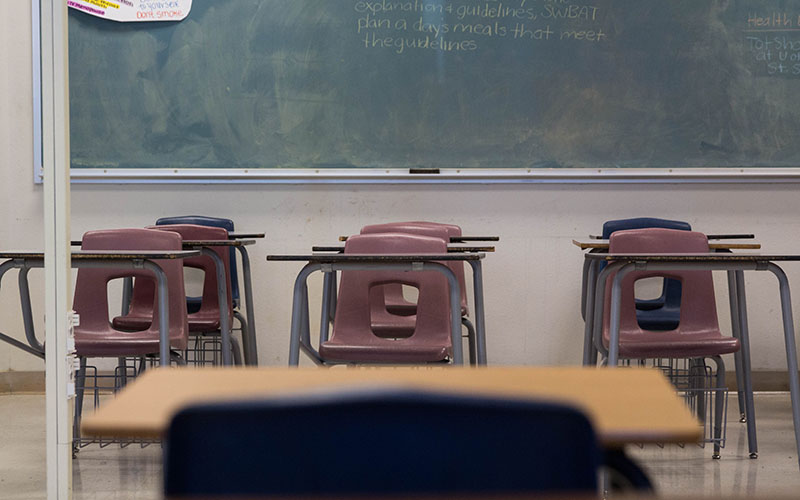
Arizona Latino Leaders in Education focuses on long-term change through leadership development and creating policies that will bridge the gap between Latinx students and others. (Photo by Tynin Fries/Cronkite News)
PHOENIX – In Arizona, 46% of K-12 students are Latinx, but the state Board of Education has only about 10% Latinx representation, according to education reform advocates.
Luis Avila, who has worked in education reform for more than 20 years, on Monday launched Arizona Latino Leaders in Education to help Latinx students get a fair shot at a good education. The initiative focuses on long-term change through leadership development and creating policies that will bridge the gap between Latinx students and other students.
“Nobody will come and save us,” Avila said. “Nothing about us will be solved without us.”
The group’s main goal is to have someone ready to be appointed to the board when there is a vacancy. The leaders will already be familiar with what the board needs and can help improve their chances of being appointed.
ALL in for Education advocates also lamented the impact of Proposition 203, passed nearly two decades ago. It changed the way Latinx students who weren’t yet proficient in English were able to learn. Bilingual and immersion classrooms were out. Classes had to be taught in English.
“If I hadn’t been exposed to dual language instruction from the beginning of my education, I would’ve been lost,” said Amalia Chamorro, associate director for Education Policy Project. “I would have really been lost, and left behind, and not able to achieve.”
Chamorro immigrated to the U.S. from Peru when she was young, and only knew the English words “‘cat” and “table”‘ when she arrived.
Across the U.S., Arizona was the state with the largest opportunity gap in graduation rates, with the graduation rate for English language learners 48 percentage points lower than the graduation rate for non-EL learners, according to the national Department of Education.
Another topic of discussion was some of the systemic disparities that face Latinx students.
“I believe that the disparities and challenges that exist for our community are not due to some intrinsic deficiencies among the Hispanic population,” said Marco Davis, CEO of the Congressional Hispanic Caucus Institute.
Monday’s session at the Arizona State Capitol is the beginning of a movement to first build awareness, and then solutions to the obstacles Latinx students.
“It’s maybe a small room at the state Capitol today,” Avila said. “But I am confident that in the next few months, and the next few years, we’ll be a power to reckon with.”
